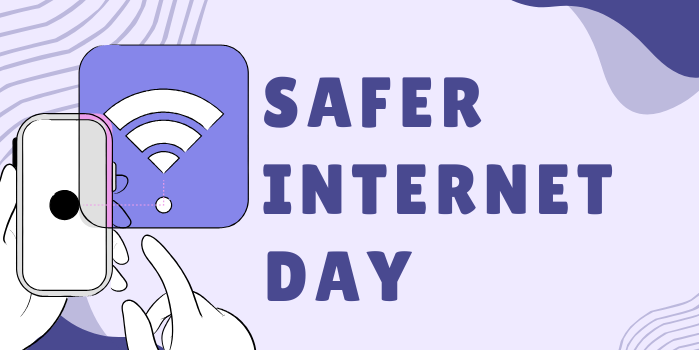
Stay Safe Online: What Every Student Should Know for Safer Internet Day
Hey everyone! Today is Safer Internet Day, a reminder that while the internet gives us amazing opportunities—whether for school, socializing, or even making money—it also comes with risks. Let’s talk about how you can stay safe online and protect your digital footprint.
What is Safer Internet Day?
Safer Internet Day (SID) happens every second Tuesday of February in over 170 countries to promote online safety and digital responsibility. For students, the internet is part of daily life. But just like in real life, being safe online is just as important.
Why Online Safety Matters for Students
Your Digital Footprint Never Disappears
Everything you post, comment on, or share stays online forever, even if you delete it. Screenshots, archives, and digital footprints mean your content can resurface at any time—especially when applying for jobs, colleges, or internships. Employers and schools often check online profiles, so an inappropriate post today could hurt future opportunities. Even private messages aren’t truly private—someone can screenshot or forward them. Think before you post: Would you be okay with a future employer or professor seeing this? Focus on building a positive digital presence that highlights your skills and achievements, rather than one that could close doors.
Keep Your Personal Information Private
Many students use platforms like CogoCity to promote their skills (tutoring, graphic design, photography, etc.).
But never share your personal phone number, home address, or email publicly.
- Use the platform’s messaging system instead of personal contact details.
- If a call is needed, younger students should involve their parents.
- Keep conversations recorded for safety.
Watch Out for Scams & Fake Job Offers
Scammers often target students with fake job offers that seem too good to be true, preying on those looking for flexible work, internships, or side gigs. These scams can appear through emails, social media messages, or even job listing websites, making them seem legitimate.
Common scams include requests for upfront payments, where scammers claim you need to pay for training, equipment, or application fees before you can start working. Another red flag is overpayment scams, where a “client” sends more money than agreed and asks you to refund the difference—only for their payment to later bounce, leaving you at a loss.
Some scams try to steal personal information, like your Social Security number, banking details, or even your home address, by pretending to need them for a job application. If a company is asking for sensitive information without a contract or legitimate verification, it’s a major warning sign.
To protect yourself, always verify job offers through official websites, trusted job platforms, or well-known companies. Be cautious if an employer refuses to meet in person, dodges questions, or pressures you to act immediately. Legitimate employers will never ask you to pay to work or request personal details without a clear purpose. If in doubt, ask a teacher, parent, or mentor for advice before sharing any information.
Cyberbullying & Online Respect
Unfortunately, cyberbullying is real, and it affects millions of students worldwide. It can take many forms—hurtful comments, spreading rumors, exclusion from online groups, or even threats. Unlike in-person bullying, cyberbullying follows you everywhere, making it harder to escape. It can harm self-esteem, mental health, and even academic performance.
If you’re experiencing cyberbullying, remember that you’re not alone, and help is available. Do not engage with bullies, as responding can make things worse. Instead, block, report, and talk to someone you trust—whether it’s a parent, teacher, or counselor.
If you witness cyberbullying, don’t just scroll past—stand up for others or report the behavior. A small action, like offering support to a victim, can make a huge difference. The internet should be a place for learning and connection, not for spreading hate. Together, we can create a kinder and safer online space for everyone.
Secure Your Accounts & Devices
With so much personal information online, account security is a must!
- Use strong passwords (not “password123”).
- Turn on two-factor authentication (2FA) for extra protection.
- Be careful using public Wi-Fi—hackers can steal your data.
- Update your devices regularly to prevent cyber threats.
How to Participate in Safer Internet Day
- Check your privacy settings on social media.
- Talk to your friends & family about online safety.
- Share safety tips on social media with #SaferInternetDay.
- If using platforms like CogoCity, make sure you’re communicating safely and keeping track of interactions.
Stay Smart, Stay Safe
The internet is a great place to learn, connect, and even earn money—but only if you use it wisely. By protecting your personal info, avoiding scams, and making smart online choices, you can stay safe while building a great digital reputation. Take a moment today to review your online habits and remind your friends to do the same. A safer internet starts with you!


Share
Facebook
X
LinkedIn
Telegram
Tumblr
Whatsapp
VK
Mail